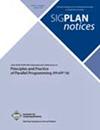使用动态类型的C/ c++进行类型和内存错误检测
Q1 Computer Science
引用次数: 63
摘要
具有弱/静态类型系统的低级编程语言,如C和c++,容易出现与运行时内存滥用有关的错误,例如(子)对象边界溢出、(重)free后使用和类型混淆。这些错误导致了用这些语言编写的程序的许多安全性和其他未定义行为错误。在本文中,我们引入了动态类型C/ c++的概念,其目的是通过在运行时使用前动态检查每个对象的“有效类型”来检测此类错误。我们还以有效类型消毒器(Effective Type sanizer)的形式实现了动态类型的C/ c++。effecvesan使用低脂指针、类型元数据和类型/边界检查工具的组合来强制类型和内存安全。我们用SPEC2006基准测试套件和Firefox浏览器对effecvesan进行了评估,发现了一些新的类型和内存错误。我们还表明,对于给定的错误覆盖率,effecvesan实现了高兼容性和合理的开销。最后,我们强调,effecvesan是仅有的几个可以检测子对象边界错误的工具之一,它使用了一种新颖的方法(动态类型检查)来检测子对象边界错误。本文章由计算机程序翻译,如有差异,请以英文原文为准。
EffectiveSan: type and memory error detection using dynamically typed C/C++
Low-level programming languages with weak/static type systems, such as C and C++, are vulnerable to errors relating to the misuse of memory at runtime, such as (sub-)object bounds overflows, (re)use-after-free, and type confusion. Such errors account for many security and other undefined behavior bugs for programs written in these languages. In this paper, we introduce the notion of dynamically typed C/C++, which aims to detect such errors by dynamically checking the "effective type" of each object before use at runtime. We also present an implementation of dynamically typed C/C++ in the form of the Effective Type Sanitizer (EffectiveSan). EffectiveSan enforces type and memory safety using a combination of low-fat pointers, type meta data and type/bounds check instrumentation. We evaluate EffectiveSan against the SPEC2006 benchmark suite and the Firefox web browser, and detect several new type and memory errors. We also show that EffectiveSan achieves high compatibility and reasonable overheads for the given error coverage. Finally, we highlight that EffectiveSan is one of only a few tools that can detect sub-object bounds errors, and uses a novel approach (dynamic type checking) to do so.
求助全文
通过发布文献求助,成功后即可免费获取论文全文。
去求助
来源期刊

ACM Sigplan Notices
工程技术-计算机:软件工程
CiteScore
4.90
自引率
0.00%
发文量
0
审稿时长
2-4 weeks
期刊介绍:
The ACM Special Interest Group on Programming Languages explores programming language concepts and tools, focusing on design, implementation, practice, and theory. Its members are programming language developers, educators, implementers, researchers, theoreticians, and users. SIGPLAN sponsors several major annual conferences, including the Symposium on Principles of Programming Languages (POPL), the Symposium on Principles and Practice of Parallel Programming (PPoPP), the Conference on Programming Language Design and Implementation (PLDI), the International Conference on Functional Programming (ICFP), the International Conference on Object-Oriented Programming, Systems, Languages, and Applications (OOPSLA), as well as more than a dozen other events of either smaller size or in-cooperation with other SIGs. The monthly "ACM SIGPLAN Notices" publishes proceedings of selected sponsored events and an annual report on SIGPLAN activities. Members receive discounts on conference registrations and free access to ACM SIGPLAN publications in the ACM Digital Library. SIGPLAN recognizes significant research and service contributions of individuals with a variety of awards, supports current members through the Professional Activities Committee, and encourages future programming language enthusiasts with frequent Programming Languages Mentoring Workshops (PLMW).
 求助内容:
求助内容: 应助结果提醒方式:
应助结果提醒方式:


